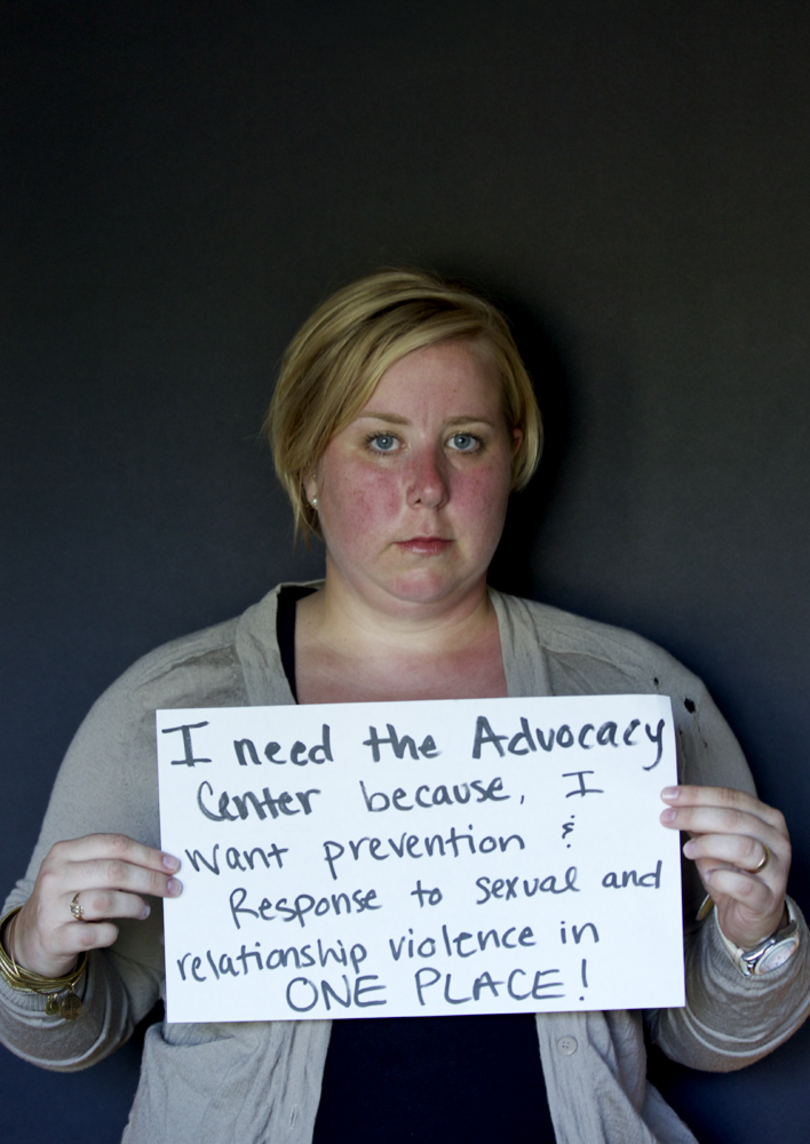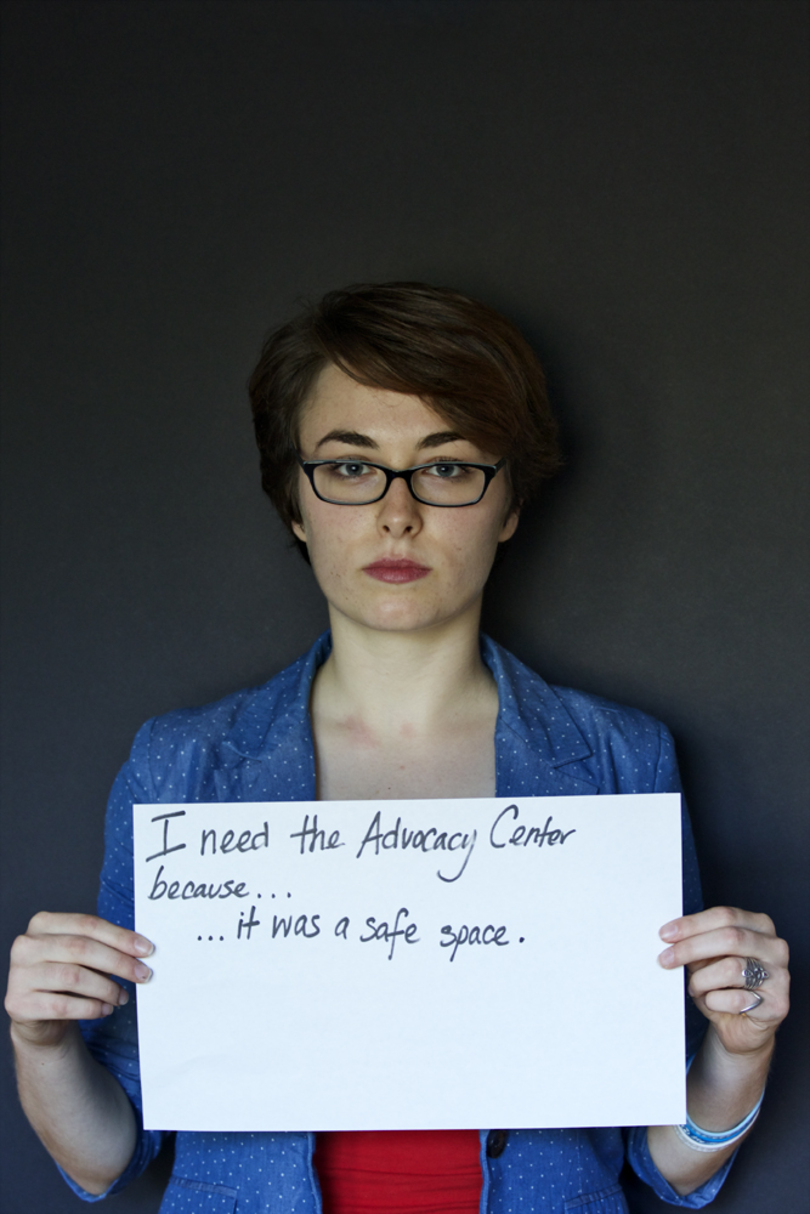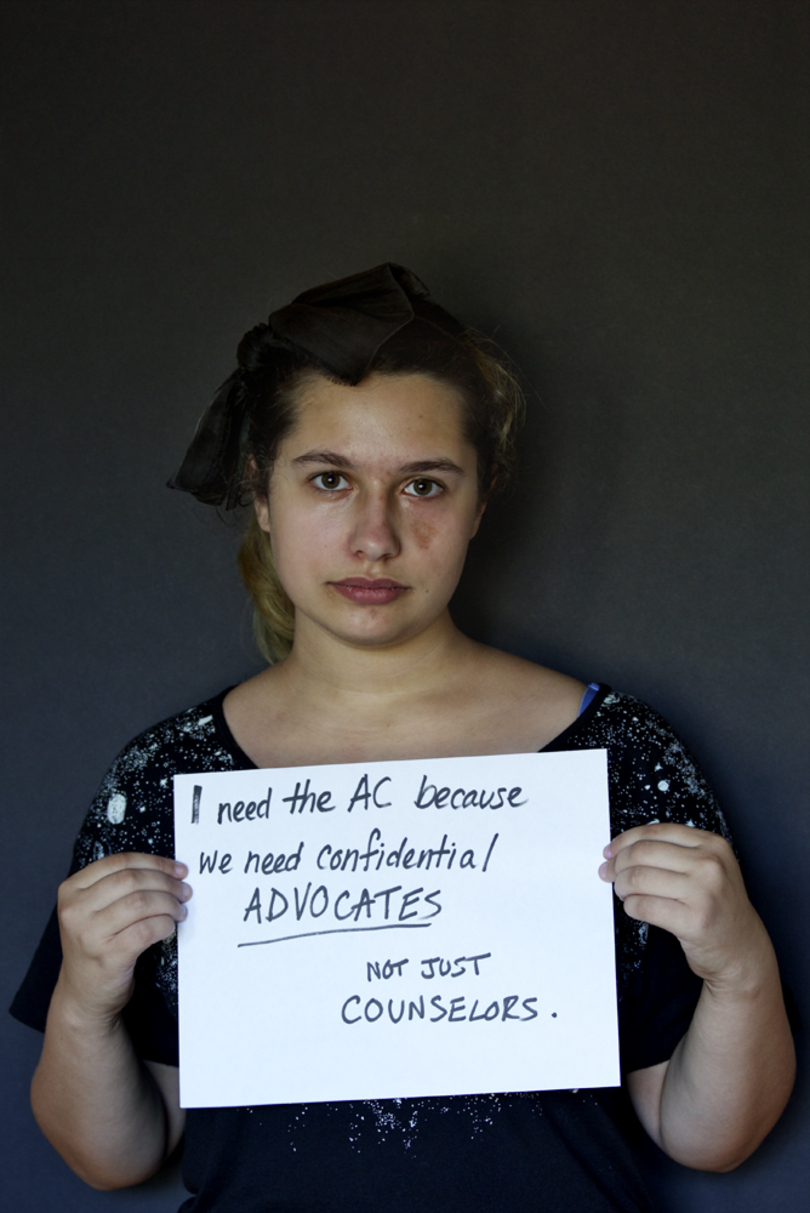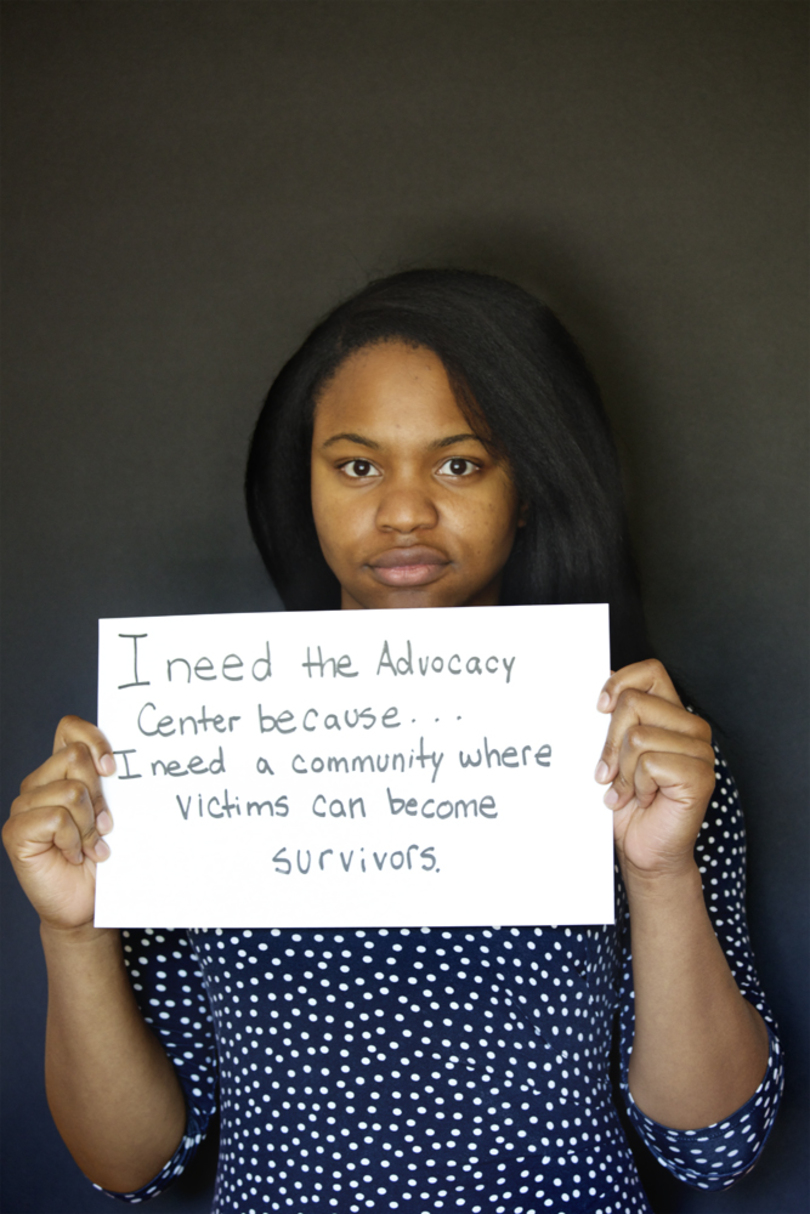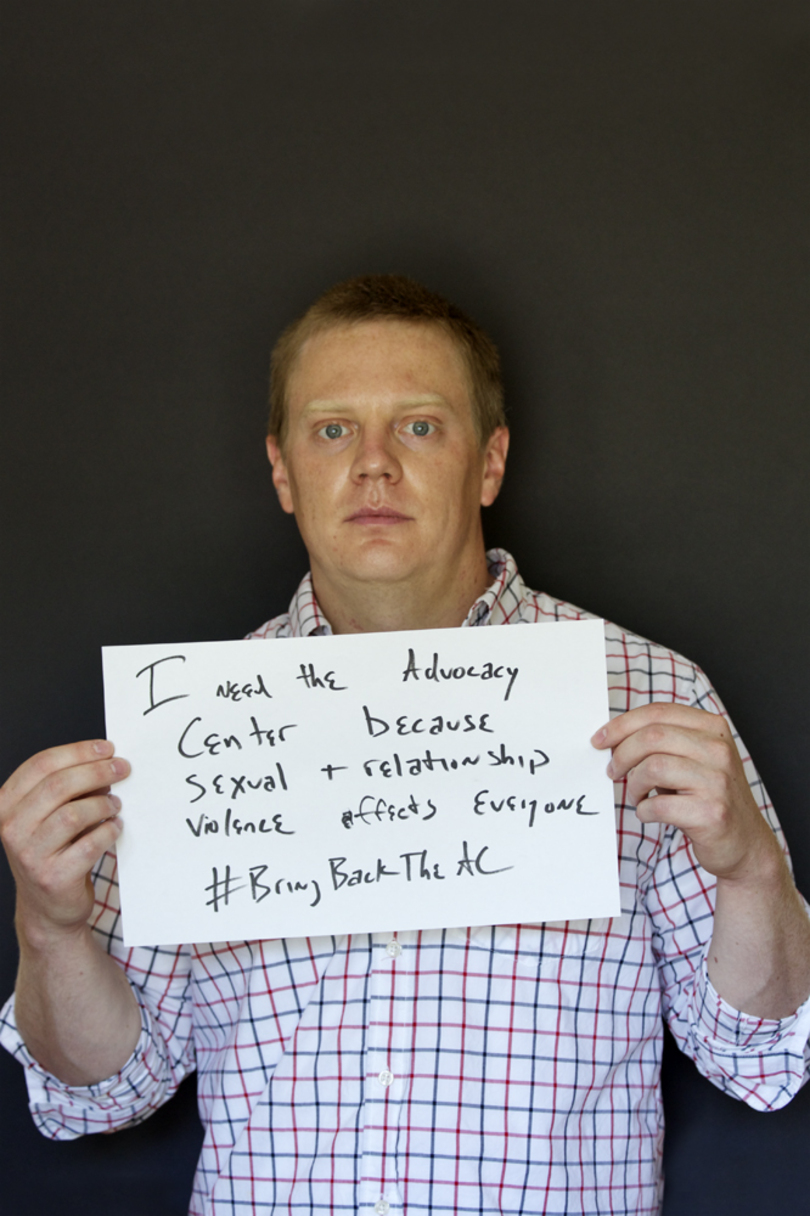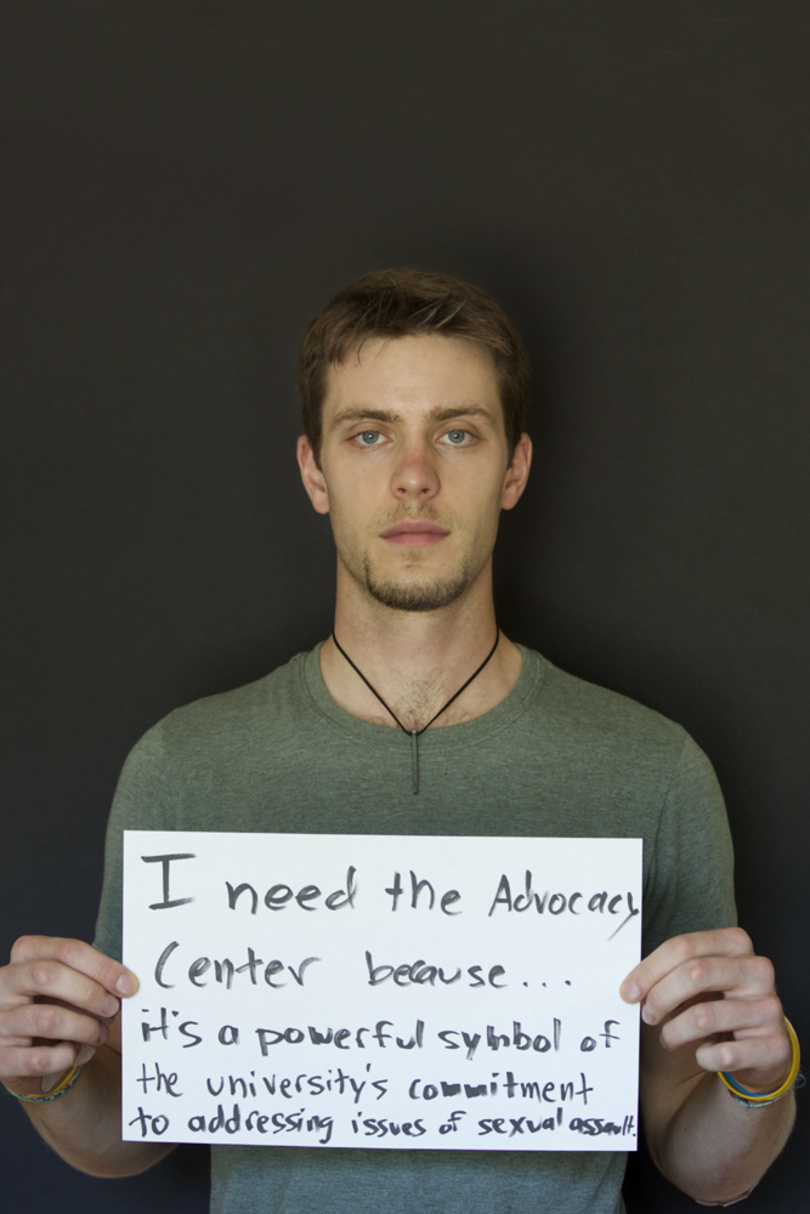Months later, details of new sexual assault resources are still unclear
When the decision to close the Advocacy Center was announced in May, Brittany Moore was one of the few students still at Syracuse University.
“It was shocking to be here on campus when it was happening, because I think so many people were so invested in it,” said Moore, a senior with a dual major in television, radio and film and information management.
Since the closing of the Advocacy Center in June, students, faculty and administrators have struggled to find common ground on issues of privilege and confidentiality within the new structure of sexual assault resources. The administration says the new structure was created to provide students with complete privacy, but some students and faculty say the changes won’t increase the level of privacy for advocacy services.
Under the new structure, the services of the Advocacy Center will be divided into the Counseling Center, the Office of Student Assistance and the Office of Health Promotion. Within the new system, the Counseling Center will be the private and confidential primary entry point for students seeking these services.
The Counseling Center will now have a Sexual and Relationship Violence Response Team that consists of five members, said Cory Wallack, director of the Counseling Center. Susan Pasco, the new associate director of the Counseling Center, chairs the response team, Wallack said.
The support services of the Sexual and Relationship Violence Response Team are completely confidential and students can contact the response team 24 hours, seven days a week, Wallack said. Even though the services to address sexual assault and relationship violence are housed in the Counseling Center, he added that the center is trying to emphasize that the support services are not related to its mental health services.
Students previously voiced concerns about the location of the Counseling Center, which is on Walnut Avenue near several fraternity and sorority houses. As a result, the response team will now meet with students in residential halls or other locations requested by the student on campus, Wallack said.
The peer educational programs such as A Men’s Issue, Sex Esteem and the MVP program will continue to meet in the same space and coordinate with the same administrators who previously ran the Advocacy Center within the Office of Health Promotion.
Janet Epstein, former director of the Advocacy Center, will run the Office of Student Assistance, which will assist and advocate for students who wish to pursue a sexual assault case through a judicial process at the university.
But the changes to create a more privileged structure for sexual assault resources have not been well received by some members of the SU community.
The same day Chancellor Kent Syverud announced the closing of the Advocacy Center, Erin Carhart, a 2014 alumna, created an online petition demanding the chancellor reinstate the Advocacy Center as a confidential resource. The petition sparked the #BringBacktheAC campaign on social media and collected 8,000 signatures within the first month of the initial announcement.
During the summer, the campaign changed its focus and is now working to have an advocacy center at SU, even if its sole purpose is to create a sense of community among survivors, advocates and educators.
In response to the closing of the Advocacy Center, the campaign will host a rally to protest the decision at the footsteps of Hendricks Chapel at noon on Sept. 10.
Faculty members also launched a petition in June asking the chancellor to delay the decision to close the Advocacy Center until students and faculty members arrived back on campus, said Chandra Talpade Mohanty, a professor of women and gender studies. The petition, she said, collected 55 faculty member signatures within three days.
“It’s a concern to us, because the closing of the Advocacy Center wasn’t discussed with most people who have an expertise,” she said.
After the immediate backlash to the closure of the Advocacy Center, Rebecca Reed Kantrowitz, senior vice president and dean of student affairs, announced that a series of listening meetings would be held on campus to clarify to the community what the new structure will look like and to listen to concerns from students and faculty.
Only two listening meetings were held this summer, both of which the chancellor did not attend. Another listening meeting will be held early in the fall as well, said Derek Ford, one of the campaign’s organizers.
Rebecca Dayton, associate vice president for the health and wellness portfolio of the Division of Student Affairs, was one of the administrators who spoke on the panel of officials during the listening meetings.
Dayton expressed concern that while students protest for an advocacy center on campus, they might spread misinformation about the new structure. She said some examples of misconception are notions that there is a decrease in services for sexual assault through the new structure and that the administration is trying to save money by consolidating the services into the Counseling Center.
“Services have been enhanced,” she said, adding that more people, time and energy have been dedicated to the new structure this summer.
The chancellor will also organize a workgroup soon that will help the community have a better understanding of the concerns for the new structure, she said.
Another issue that has been discussed between administrators and students is the idea of confidentially and privilege. Unlike the Advocacy Center, the Counseling Center is respected as a privileged and a confidential space. There are professionally trained counselors who are not considered responsible employees under Title IX, according to a fact sheet released by the university in June.
Privileged and confidential resources have different meanings by law. A service that is non-privileged and confidential must still provide a student’s information about the nature, date, time and general location of an incident, according to the fact sheet.
Under the new structure, the Office of Student Assistance will act as the entry point for students who want to pursue a judicial case within the university.
But the Office of Student Assistance is also not considered a confidential space, said Randi Bregman, the executive director of Vera House, which partners with the university.
“That part doesn’t make sense to me in this model focused on privilege, so I’m hoping we can focus on that very early as we move forward this year,” she said.
Wallack, the head of the Counseling Center, said if students enter a judicial process with the university and share any additional information about another sexual assault case with a staff member within student assistance during the formal process, it will be considered private information.
Meaghan Greeley, a graduate student in the master of social work program at SU, said she has spoken with multiple members of the administration involved in the decision to create the new sexual assault resource structure, and she said that she has received different answers each time about the level of confidentiality within the Office of Student Assistance.
If the administrators do officially consider the Office of Student Assistance as a confidential resource, Greely said, then it begs the question as to why the Advocacy Center was closed, when it could have performed the same tasks with certain assumed confidentiality.
Moore, one of the students involved in the campaign, said she hopes that students will get involved and stay engaged as the decisions for the new structure for sexual assault resources develops this fall.
“I think now that everyone is back, students can really be involved, attend the listening meetings, attend the rally, hear what the administration has to say and really push the administration to make the best out of this situation,” she said.
Correction: In the Aug. 26 article “Advocating for answers: Months later, details of new sexual assault resources are still unclear,” Janet Epstein’s title was misstated. She will not run the Officer of Student Assistance, but rather will just work there. The Daily Orange regrets this error.
Published on August 26, 2014 at 12:01 am
Contact Anna: almerod@syr.edu


